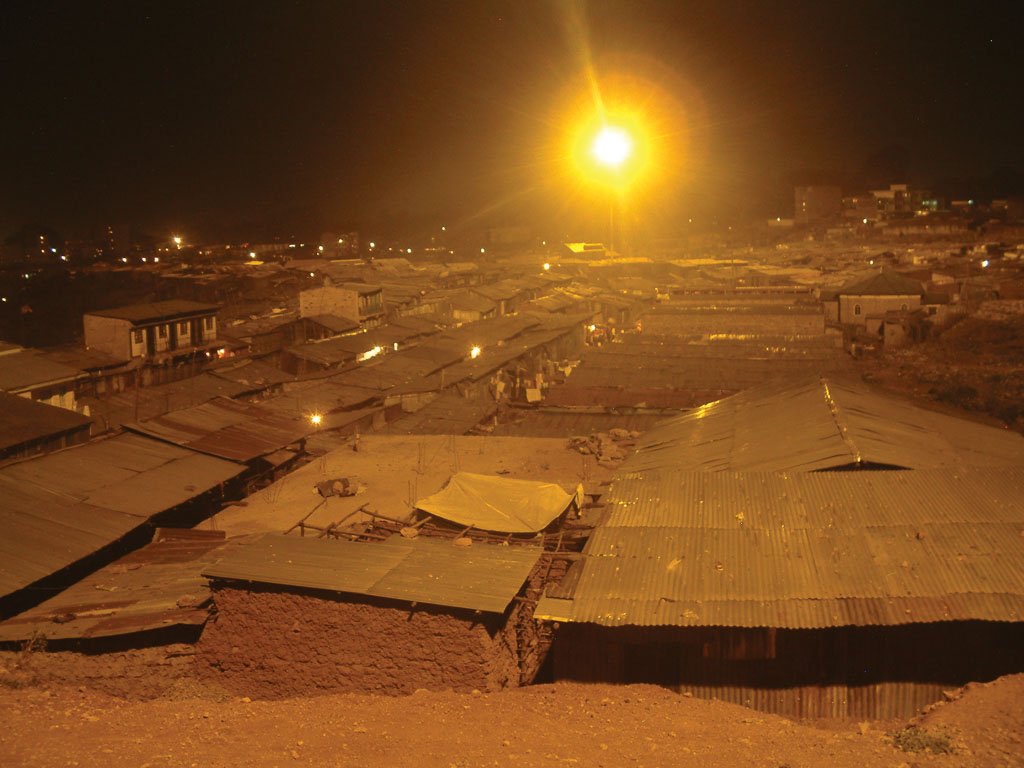
Jeff Koinange entered Iraqi airspace on the Christmas morning of 2004 to cover the US-led coalition invasion for Cable News Network (CNN).
“The pilot emphasised that due to the state of insecurity and the presence of insurgents with surface-to –air missiles, he would be making what was known as ‘spiral landing’. This would involve dropping the plane from twenty eight thousand feet to ground level in less than two minutes… For the first time in many years of flying, everyone on the plane was quiet.”
An hour-and-a-half later the pilot announced that he was about to begin the descent. Mr Koinange, one of Africa’s most-celebrated journalists, could feel the cabin pressure as the aircraft swept past mountains making its way to the airport beyond. “A few journalists threw up,” he says.
After putting on bulletproof jackets, two heavily armed men in khakis escorted Jeff and his team to the CNN Bureau through the ‘Assassins Highway’ that was lined with shells of bombed-out vehicles every few miles and heavily manned check-points.
He was to stay in Baghdad for eight weeks; filming and transmitting live from the rooftop of the CNN Bureau within the heavily fortified Green Zone.
This little episode, like many others in Jeff’s recently published book, Through My African Eyes, reveals the behind the scenes daredevil energy that goes into a story. More than anything else, the book demystifies Jeff Koinange and sheds light on journalism as a profession.
Through My African Eye unveils a boy growing up in the village in late 1960s through the 70s to mid 80s under the tough but loving and determined hands of a widowed, young mother of four.
Born Geoffrey Mwaura Koinange after his maternal grandfather on January 7, 1966, Jeff grew up in the little village of Kiambaa, 30km west of Kenya’s capital, Nairobi. He was to later drop the English spelling of Geoffrey and adopt the Americanised version, Jeff. Jeff’s father, Frederick Mbiyu Koinange was son to Senior Chief Mbiyu Koinange. He died of heart attack on March 7 1966, exactly two months after Jeff’s birth.
Jeff’s first job was office clerk at Banker’s Trust Overseas Representatives Incorporated. It was a Nairobi based American Merchant bank. The job was courtesy of Rachel Koigi, his mother’s former student.
He then applied for flight attendant position with Pan Am, a US airline. Jeff was called for an interview three months later and was lucky to be selected among 40 other Kenyans. For the next 18 months, from February 1986 to June 1987, Jeff worked for the airline’s local flight as an attendant, plying Nairobi-Monrovia.
All the while, passengers, especially after listening to Jeff’s in flight announcements insisted broadcasting is what best suited him. In between the joy and fun that came with flying, Jeff thought of going back to school to study journalism.
Isle de Goree or Goree Island, Dakar, ‘one of the most tragic and painful places on the African continent’, is what eventually got Jeff to make up his mind. He had visited the Island along other tourists in one of the many sightseeing tours during his off time.
Thousands of African men and women were taken in chains to Goree Island from the hinterland, put in temporary storage awaiting ships from Europe during the infamous Slave trade. Goree Island was ideal because it would take a healthy man two hours to swim back to shore in the shark-infested waters.
Journalism, he thought, would be his avenue and the voice his main instrument. That day, he quietly made a decision to go back to school. A few months later, he quit from Pan Am, ending his 18-month steamy stint as flight attendant.
It was Mohammed ‘Mo’ Amin, the celebrated photojournalist (now late), while working with Reuters who called Jeff up from the US in 1995. Mo was in the process of launching the African Journal, a weekly television magazine featuring African stories. Unfortunately, Jeff arrived in Nairobi in September 1995 to find Mo fired from Reuters. His job was still valid though on the African Journal.
He also applied for a supplementary job as a news anchor and reporter at the Kenya Television Network (KTN) where his first appearance on Prime Time news caused a stir. Africa Journal, headed by Michael Bradbury also picked up big time. He quit in 1998 to concentrate on the journal; a move he says was to later open door for future opportunities.
In May 1997, Jeff got his first call up as a first responder – a seasoned journalist flown in for Breaking News stories. It was in Zaire, now Democratic Republic of Congo, where child soldiers had overthrown Mobutu Seseseko’s regime. Jeff, with various world’s news agencies and television including CNN, was to later comb Africa’s cities ravaged with war and natural calamities, telling the story of Africa to the world.
He also covered Hurrican Katrina’s aftermath in New Orleans, US, the one that tested the abilities of the world’s super power in disaster management. Above all, Jeff covered the major conflict regions of the world.
His nature of work meant he rubbed Africa’s strongmen the wrong way particularly in Nigeria where a smear campaign on his integrity was orchestrated. He severed links with CNN, his last international media house, in unclear circumstances in mid 2000.
In his entire working as a top flying journalist, however, Jeff exhibited most of the must-have abilities for successful journalism including humility. Later in 2007, Jeff was roped in to drive the wheels of the nascent K24 television. He would later coil the rallying slogan, ‘All Kenyan All the time’ at K24 as he helped nurture raw but
Through My African Eyes is much the story of the events shaping Africa from mid 1990s to mid 2000 and how they were reported as is about Jeff Koinange.
By David Wanjala


